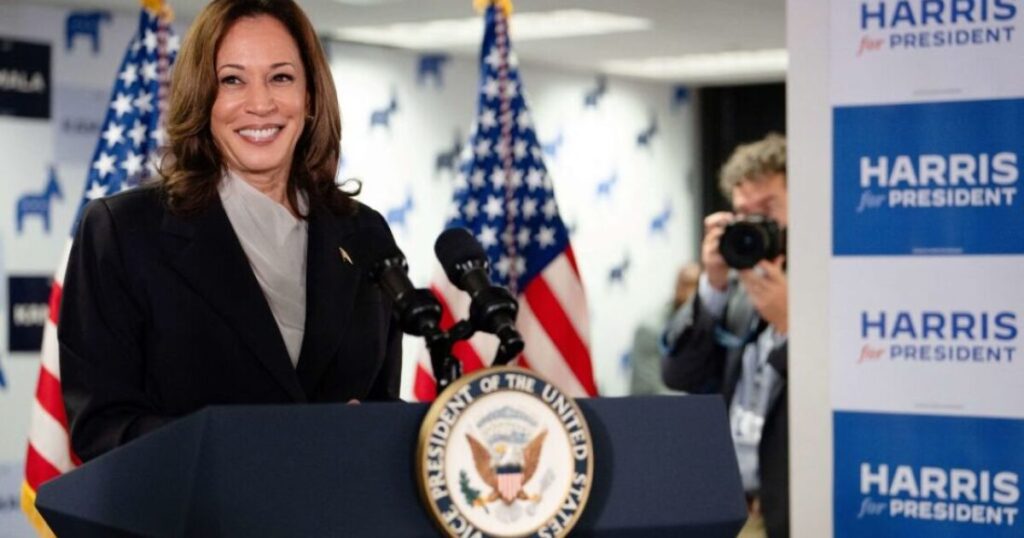In a significant move that reflects shifting sentiments within the media landscape, USA Today announced its decision not to endorse a presidential candidate for the upcoming 2024 election. This marks a notable departure from the paper’s historical practice, particularly following its endorsement of Joe Biden in the 2020 election, which the editorial board characterized as an extraordinary moment in American history demanding an extraordinary response. The newspaper’s spokesperson articulated a commitment to providing readers with the information necessary for informed decision-making, reinforcing the idea that the future of America is determined largely by local elections. This decision highlights a broader trend among major publications as they elect to remain neutral in a political climate increasingly characterized by division and discord.
The reluctance of USA Today to endorse Vice President Kamala Harris and her running mate, Tim Walz, indicates a substantial shift in how media entities approach elections. Previously, the paper had positioned Biden as a necessary antidote to the chaos of Donald Trump’s presidency. However, this year’s avoidance of an endorsement for the Democratic candidate illustrates a growing disconnect between the media and the perceived viability of Harris and Walz. Alongside USA Today, several other major publications, including The Washington Post and the Los Angeles Times, have also opted not to back the Democratic ticket, implying a more extensive reevaluation of political endorsements among established media outlets.
The editorial board of USA Today has expressed a belief that the decision not to endorse stems from the understanding that electoral outcomes are decided at the local level rather than through national endorsements. This assertion may reflect the paper’s intention to focus on informing their readership about the facts they consider most pertinent, rather than imposing a singular narrative or recommendation for a presidential candidate. The paper, touted for its widespread reach—boasting a print circulation of 132,640 and the representation of over 200 local newspapers—aims to fulfill its role as a public service by prioritizing transparency and accuracy in its reporting over partisan endorsements.
In a broader context, the trend of major newspapers withholding endorsements resonates with a growing dissatisfaction toward the Democratic candidates among traditional allies. Analysis indicates that out of the six largest newspapers in the United States, five have either refrained from endorsing the Harris-Walz ticket or have entirely eliminated endorsements. This is particularly striking given the history of these outlets, many of which endorsed Biden in the last election cycle. The Washington Post’s announcement of a complete end to presidential endorsements, and similar decisions by the Los Angeles Times, signify a deeper reconsideration of the responsibilities and roles of media in political discourse.
Beyond the realm of print media, significant labor organizations such as the International Brotherhood of Teamsters have also chosen to withhold their endorsement of the Democratic ticket, a decision that marks a departure from nearly three decades of backing Democratic candidates. Similarly, the International Association of Fire Fighters has opted not to endorse the ticket for only the second time since 1976. These actions reflect a broader sentiment of disillusionment within one of the traditional pillars of Democratic support, highlighting the challenging landscape that Harris and Walz must navigate as they campaign for the upcoming election.
As the campaign heats up, the absence of endorsements from both influential media outlets and key labor organizations presents a complex challenge for the Harris-Walz ticket. With mounting concerns about the candidates’ ability to galvanize both voter enthusiasm and media support, there is a palpable sense of urgency as they seek to maintain political momentum in a tumultuous electoral climate. The shifting dynamics signify that for the Democrats, particularly under the leadership of Harris and Walz, the path toward re-election may be fraught with obstacles and increased scrutiny from both the public and the media. Ultimately, this unfolding narrative underscores the unpredictable nature of the 2024 presidential race and the factors that will shape its outcome.

